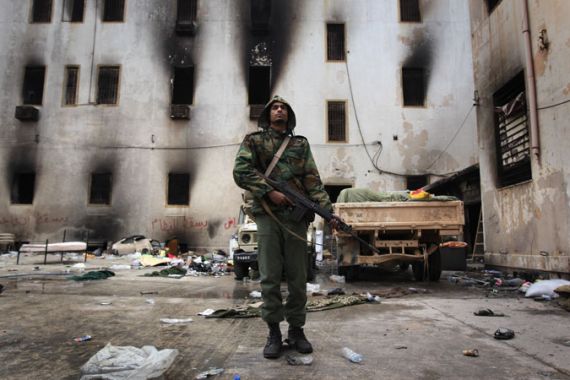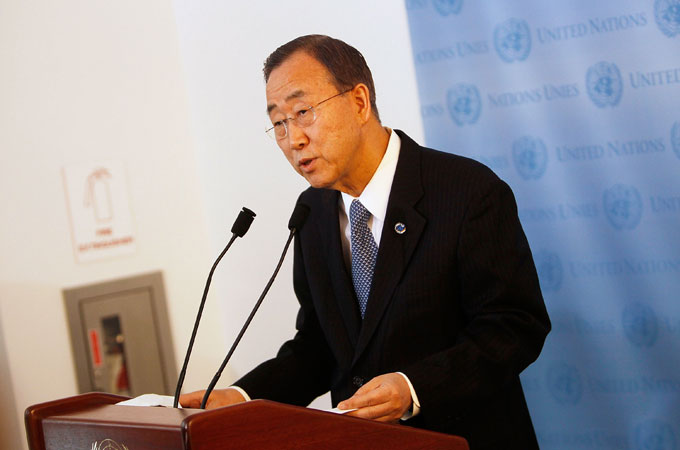UN to meet on Libya violence
The UN Security Council will meet on Friday and may push for sanctions to deter government-sponsored violence.

 |
| Ban Ki-moon, the UN secretary-general, will also attend the meeting on Libya. [GALLO/GETTY] |
The UN Security Council will meet on Friday to consider actions against Libyan leader Muammar Gaddafi’s government that could include sanctions aimed at deterring his violent crackdown on anti-government protesters.
France’s UN mission said late on Thursday that Ban Ki-moon, the secretary-general, will attend the meeting at 20:00 GMT on Friday.
Michele Alliot-Marie, the French foreign minister, said ahead of the meeting that a joint French-British draft resolution would call for a “total arms embargo, sanctions and asking the International Criminal Court to proceed over crimes against humanity”.
The sanctions could include financial sanctions and travel bans, she told French radio.
“The situation is very serious, it is absolutely necessary that the ICC is also involved.”
Also on Friday, Guido Westerwelle, the German foreign minister, said his country was also preparing sanctions, including travel bans and asset freezes on Gaddafi’s family. He dismissed economic sanctions on the country as a whole.
Diplomats earlier said Mark Lyall Grant, Britain’s UN Ambassador, told the council in closed consultations earlier on Thursday it was imperative that members look at possible next steps because Gaddafi had failed to heed the council’s demand to end the violence.
The diplomats, speaking on condition of anonymity because the talks were private, said there was agreement among the 15 council nations to discuss further options. No date has been set, but diplomats said closed-door consultations are likely to take place on Friday or over the weekend.
Although no specific actions have been proposed, diplomats said no options are being ruled out.
Diplomats said possible sanctions likely to be put on the table include travel bans and asset freezes against Gaddafi and top officials in his government, an arms embargo against the government, and imposition of a no-fly zone over Libya.
Possible sanctions
China and Russia, traditionally reluctant to interfere in the internal affairs of other countries, supported the strong press statement the council issued on Tuesday which condemned and deplored “the repression against peaceful demonstrators,” demanded an “immediate end to the violence,” and called for steps “to address the legitimate demands of the population.”
Whether China and Russia will go along with sanctions – which both countries also generally oppose – remains to be seen.
Asked whether Beijing would agree to further action, Yang Tao, China’s political counselor, told reporters: “We’ll consider it.”
Barack Obama, the US president, on Wednesday condemned the violence in Libya in sharp terms and directed his administration to prepare a full range of options.
Peter Wittig, Germany’s UN Ambassador, whose country is serving a two-year term on the council, gave strong backing to council measures.
“We made clear that the violence against civilians and the question of oppression against people, demonstrators, just has to stop,” Wittig told reporters after the closed consultations.
NATO meeting
An emergency meeting of the North Atlantic Treaty Organisation (NATO) has also been called for Friday, Anders Fogh Rasmussen, the body’s secretary-general, announced.
“I have convened an emergency meeting in the NATO council this afternoon to consult on this fast-moving situation. So I
will return to Brussels in a few hours,” he told the Reuters news agency during a visit to Budapest on Friday.
He said he would meet with European Union defence ministers ahead of the meeting.
Rasmussen said that priority must be given to evacuation and humanitarian assistance, and that NAto could act as an “enabler and coordinator” if individual member states wished to take action.